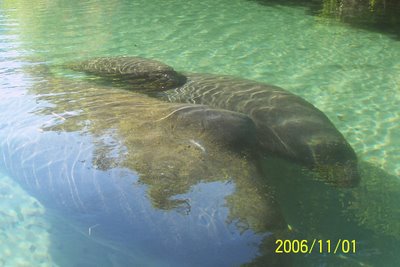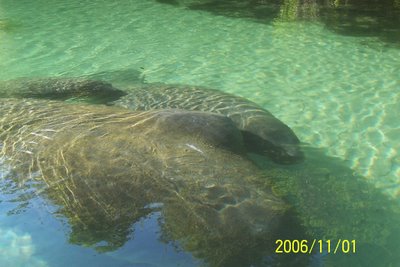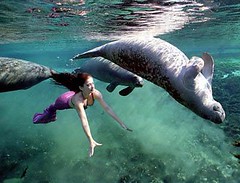An effort has been launched to try to rescue a manatee spotted on a Mississippi River tributary near downtown Memphis, TN. The endangered animal was reported to the Tennessee Wildlife Resource Agency on Monday, October 23rd. It is estimated that the manatee swam more than 700 miles against the current and dodged busy boat traffic to reach the Memphis destination.
"Save the Manatee Club immediately offered financial assistance for the effort. We have been in regular contact with staff at the U.S. Fish and Wildlife Service, and they are working with Tennessee wildlife officials, the Memphis Zoo, and the Manatee Rescue Team from Sea World Orlando," said Patrick Rose, Executive Director of Save the Manatee Club. "The team is in place in Memphis, and they are out on the water now hoping to capture the manatee and bring it to safety.”
Cool water temperatures in the area have been a concern for those who have been monitoring the wayward manatee. A semi-tropical species, manatees cannot usually tolerate water temperatures much lower than 68 degrees for long periods of time. Water temperatures in the Wolf River Harbor, where the manatee has been seen, have been in the 64-degree range.
In the winter, usually November through March, the manatee population is concentrated primarily in Florida. Water temperatures below 21º C (70º F) usually cause manatees to move into warm water refuge areas. Manatees are susceptible to cold-related disease, and they congregate near natural springs or warm water effluents of power plants.If the capture is successful, the manatee will be placed on foam cushions and brought back to Florida in a Sea World rescue truck. Manatees are mammals, so they can, if kept moist, survive out of water for a period of time. Once the manatee reaches Florida, it may need to spend some rehabilitation time at Sea World Orlando before being released to back to the wild. The unusual visitor in the Memphis harbor has attracted much media attention and many onlookers hoping to catch a glimpse of the manatee. Local residents have even nicknamed the animal "Manny." "We don't know why the manatee swam so far up the Mississippi with cold weather approaching, but we are all rooting for his or her safe return and eventual release back into the wild," said Rose.Manatees are an endangered species and are protected under the federal Endangered Species and Marine Mammal Protection Acts.









